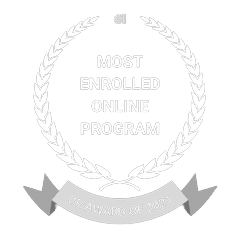our location

New Orleans, LA
Monday - Friday 09:00 AM - 06:00PM

This Data Analytics course makes you a Data Analytics expert. Our Data Analyst certification course helps you learn analytics tools and techniques, how to work with SQL databases, R, and Python, how to create data visualizations, and apply statistics and predictive analytics in a business environment. This data analyst course also features Masterclasses from leading industry experts.
Exclusive Hackathons, Masterclasses & Ask-Me-Anything sessions by TA Experts
Specially designed & delivered for freshers & working professionals
Data driven Projects likes of Apple, Google, Walmart and many more
Upon completion of our course 80% of the talent noticed by the top hiring companies.
Customized learning paths, 10x outcomes & completion
rates; Exclusive priority training support.
Customized learning paths, 10x outcomes & completion rates; Exclusive priority training support.
SQL (pronounced interchangeably as “sequel” and “S-Q-L” in the industry) is a query language that allows coders to find, change or otherwise manipulate information in relational databases. SQL’s utility and easy to learn syntax have long cemented it as a standard language for back end developers and data scientists. The query language can also be used in tandem with scripting languages such as PHP to create dynamic web pages.
SQL (Structured Query Language) is used to perform operations on the records stored in the database, such as updating records, inserting records, deleting records, creating and modifying database tables, views, etc.SQL is not a database system, but it is a query language.SQL is a standard database language used to access and manipulate data in databases. SQL stands for Structured Query Language. SQL was developed by IBM Computer Scientists in the 1970s. By executing queries SQL can create, update, delete, and retrieve data in databases like MySQL, Oracle, PostgreSQL, etc. Overall SQL is a query language that communicates with databases.
If you’re pursuing a career that even tangentially relates to data manipulation or analysis (e.g., back end programming, data science, cybersecurity, etc.,) you need to learn SQL. As mentioned earlier, SQL is the standard query language used to interact with relational databases. If you don’t have this fundamental skill, you’ll be hard-pressed to fulfill your daily responsibilities — or even find an employer willing to hire you.
Getting certified in SQL can help to prove your knowledge and expertise in the language. It can also help to open up more job opportunities, as many employers look for applicants with certifications. Certification can also help to increase your salary, as employers may be willing to pay more for a certified professional. Finally, certification can help to demonstrate your commitment to learning and continuous improvement, which can help to demonstrate your value to potential employers.
Yes, this course is designed to help you learn SQL from scratch. You’ll learn the fundamentals of SQL, including how to write code, run queries, and create tables and databases. You’ll also learn how to apply these skills to real-world scenarios and use SQL to manipulate data. By the end of the course, you’ll have a solid foundation of SQL knowledge and be ready to take your skills to the next level.
Once you have successfully completed all the required coursework, assignments, and any other requirements for this course, you will receive your certificate.
Working on projects, simulations, and case studies will give you the knowledge and abilities to put yoursef ahead of the competition.
Tell your friends and coworkers about your Data Analyst Certification course by posting it on LinkedIn, Twitter, and Facebook, or boost your resume.
I recently took this course to learn more about SQL and I am very impressed with the content. It is well structured and easy to follow along. The instructor is knowledgeable and provides plenty of examples to understand the concepts. I highly recommend this course to anyone looking to get a better understanding of SQL.
Very simple narrative through out and all concepts explained in layman terms easy to understand for any person across any domain.

Monday - Friday 09:00 AM - 06:00PM